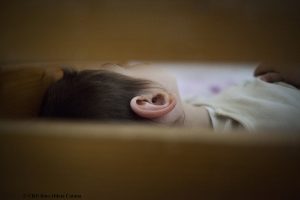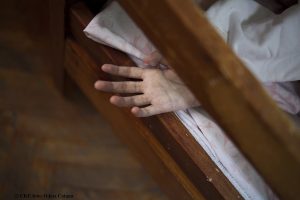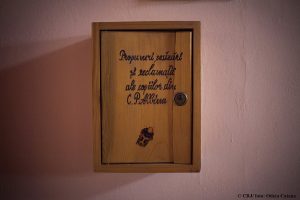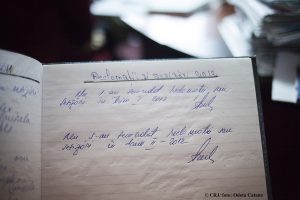The Mobile Legal Clinic is part of the project “SOS: Romanian NGOs, together for the rights of persons with mental disability in closed institutions”, co-financed by a grant from Switzerland through the Swiss Contribution to the enlarged European Union.
 The Mobile Legal Clinic
The Mobile Legal Clinic
One of the main human rights is the absolute right of access to the legal system, a right every person should rejoice. However, there is one category that doesn’t see this right fully respected – the people with mental or intellectual disabilities, who live in the Romanian institutions. People who have no means or possibility to complain, in any way, about any of their fundamental rights being broken, because they are isolated and uninformed, especially because, in most cases, those who break their rights are precisely their guardians, those who should take care of their well being and who represent them legally.
From the great necessity of ensuring the access to the legal system of the people with intellectual disabilities or mental health problems was born the project called the “Mobile Legal Clinic”.
Along the years, we have paid hundreds of unannounced visits to Romanian centres and we have noticed how the residents in these institutions truly need someone to hear their voices and give them legal counselling and support. Moreover, in the decision taken regarding the case of the Centre for Legal Resources, in the name of Valentin Câmpeanu, against Romania (http://bit.ly/2mt6kD1), the European Court for Human Rights noted that the Romanian state has the obligation to “envisage the necessary general measures to ensure that mentally disabled persons in a situation comparable to that of Mr. Câmpeanu, are afforded independent representation, enabling them to have Convention complaints relating to their health and treatment examined before a court or other independent body”.
 “Death Camps Next to You”, first step towards the “Mobile Legal Clinic”
“Death Camps Next to You”, first step towards the “Mobile Legal Clinic”
Starting from 2015, the Centre for Legal Resources has implemented the human rights campaign “Death Camps Next to You”, a project meant to create an Independent Monitoring Mechanism designed to contribute to the reduction of ill and degrading treatments of the people with disabilities who live in orphanages or in neuropsychiatric rehabilitation centres.
CLR has, therefore, travelled the country, paying unannounced visits to residential centres and also organising an architectural installation with photos in public places, to raise public awareness on the daily life of youngsters with disabilities who live in rehabilitation centres. Still, with every visit and every city, we were faced with the need to do more, to go further and involve ourselves in something more palpable in order to protect the rights of these vulnerable category of people.
This is how the “Mobile Legal Clinic” appeared. A project necessary for the Romanian society, designed to answer to the need for protecting the physical integrity, the right to health and proper care and the dignity of the persons with mental disabilities devoid of freedom. The project is also meant to represent these people’s interests in their relationship with the state, either directly, through referrals, or indirectly, through reports, recommendations and public policies.
 Legal service for the most vulnerable people
Legal service for the most vulnerable people
The “Mobile Legal Clinic” is a project that has proven its efficiency in New York (the United States of America), through offering legal services. Now, Romania is joining. The clinic has already started its activity, through unannounced visits and offering legal assistance to people with mental disabilities who live in institutions and to those who have asked for our help, either in writing or by calling our phone number.
Throughout the project, the clinic’s experts will travel to residential centres or go into communities, in order to offer legal services to people with mental disabilities. They will set up a “mobile legal office”, designed to reach the isolated institutions, in the poorest areas, in the country side or in small cities, in order to offer information, counselling or legal assistance to those in danger of being institutionalised because of the lack of services in the community.
On top of that, the clinic’s experts and the volunteers will offer counselling, twice a month, in places especially created for that and located in front of main institutions, where dozens of people with children regularly go to ask for information and services adequate to their needs. These institutions are the ones where the meetings of the Commissions for child protection (Romanian: Comisiile de protecţie a copilului), the Commission for certification of disability degree (Romanian: Comisia de încadrare în grad de handicap) and the Commission for educational orientation (Romanian: Comisia de orientare şcolară) take place.
 The targeted group – the 25.000 people with mental disabilities who, most of the time, become free only after death
The targeted group – the 25.000 people with mental disabilities who, most of the time, become free only after death
Over 90% of the people with disabilities who are locked in centres become free only after their death. Many times, using the excuse that this category of people needs to be isolated, the authorities succeed in keeping them away from their families, but also out of the reach of the NGOs.
According to the statistics of the Ministry of Labour, at the end of 2016, over 25.000 people were living in 771 centres for social assistance, while other 10.000 children who need special education and another 40.000, living with professional foster caregivers or in families, who risk being abandoned in orphanages or residential centres, because of the lack of social, medical and educational services, both in cities, and especially in the countryside.
FINANCING:
Project co-financed by a grant from Switzerland through the Swiss Contribution to the Enlarged European Union
For more information access:
www.swiss-contribution.admin.ch/romania.
This website does not necessarily reflect the position of the Swiss government. Responsibility for its content lies entirely with the Centre for Legal Resources.
BUGET
265.170 CHF (total) of which 237.575, 35 CHF co-financing from Switzerland and 27.594,65 CHF the contribution of the Centre for Legal Resources.
CONTACT
Georgiana Pascu, “Advocate for Dignity” Programme Manager, gpascu@crj.ro
